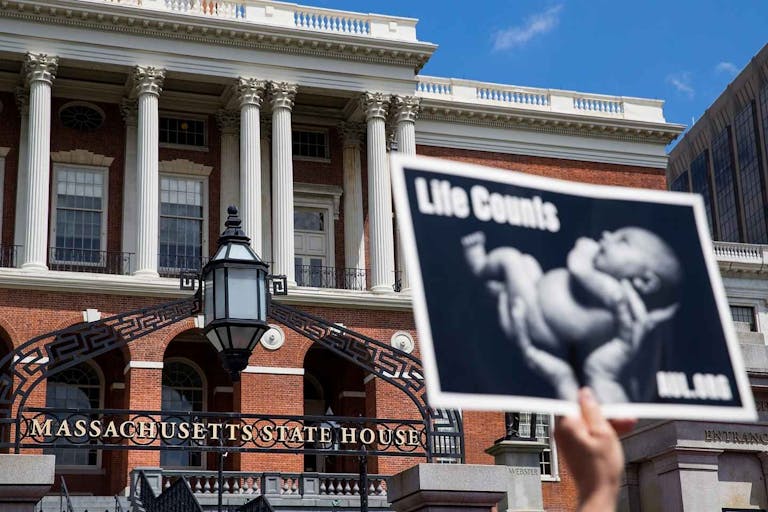
Massachusetts Health Department wants primary care to include abortion
Cassy Cooke
·
Colleges to pregnant women: You’re not welcome here
Last week, Yale announced that its student health plan will cover sex-reassignment surgery for students, deeming it an important part of “equal-access” health care.
This might shock anyone who doesn’t follow academia, but I wasn’t the least bit surprised. This is just the latest among seemingly endless efforts by colleges to accommodate the LGBT (lesbian, gay, bisexual, and transgender) student community.
“We hope that this represents a commitment to catch up to our peers in terms of offering transgender students an equitable student life and health care experience,” Gabriel Murchison, a member of Yale’s Resource Alliance for Gender Equity, told the Yale Daily News.
While offering coverage for sex changes is extreme, many campuses offer gender-neutral housing with the same goal in mind: to make the college experience more comfortable for gay and transgender students. My own Ohio University set aside gender-neutral dorm space back in 2011, and the student newspaper praised this decision as a “progressive step,” which was meant mostly “to accommodate those students who identify as transgender.” (No one seems to have conducted any research to see how many transgender students were actually enrolled at OU.)
And you know what? I’m okay with that. Cost issues aside, I’m glad that colleges are reaching out to students who struggle to find acceptance in the “real world.” Unfortunately, they show no such concern for another demographic that could use support on campus: pregnant students.
“I felt…pitied by the faculty,” says Lauren Pope, now a married mother of four living in Austin, Texas. “There was definitely an undertone of disapproval.”
Lauren was a freshman at Salem College when she found herself unexpectedly pregnant. She knew she wanted to carry the pregnancy to term and marry the baby’s father. But it soon became clear that she had another choice to make: a baby or a degree.
“There was no on-campus housing for married students,” says Lauren. “Since I’d have to live off campus, my scholarship was cut. They actually reduced it by more than just the amount that covered housing, so my out of pocket costs were a lot higher. There were no services of any sort for day care.” She had no choice but to leave Salem and transfer to a local college in Austin.
Considering their lack of resources and support, is it any surprise that a third of all abortions in the U.S. are performed on college-age women? There’s an office of LGBT Affairs on nearly every campus. Where is the resource center for pregnant and parenting undergrads?
Article continues below
Dear Reader,
In 2026, Live Action is heading straight where the battle is fiercest: college campuses.
We have a bold initiative to establish 100 Live Action campus chapters within the next year, and your partnership will make it a success!
Your support today will help train and equip young leaders, bring Live Action’s educational content into academic environments, host on-campus events and debates, and empower students to challenge the pro-abortion status quo with truth and compassion.
Invest in pro-life grassroots outreach and cultural formation with your DOUBLED year-end gift!
I decided to call Ohio University and find out. First was the student health center. Did they offer any sort of prenatal care for students?
“No,” they told me. “We have a gynecologist on staff, but for pregnancy, they’d have to be referred out.” Since OU is in a rural area, this could mean that a pregnant student has to travel considerable distance to see a doctor.
I called the housing department. Did they offer any on-campus housing for parenting students? The employee who answered the phone seemed a bit baffled that I’d ask such a weird question and put me on hold to find out. (Unsurprisingly, the answer was “no.”)
“We know that young women, especially students, who become pregnant, are directly targeted by Planned Parenthood and the abortion industry,” Kristan Hawkins, president of Students for Life, told me. “Often, there is nowhere for her to live on campus after she is ‘outed’ as being pregnant and there is no housing available for her on campus after the baby is born; no daycare options, no changing tables in the bathrooms, or lactation rooms. “
That’s a striking contrast to the LGBT community, which has demanded – and received – gender-neutral housing and gender-neutral bathrooms on many campuses. Hawkins said it’s time for pro-life students to start speaking up.
“In many universities today, the administration has never been asked to provide accommodations for pregnant and parenting students, so they have never thought about it,” she said. “We want to force administrations to think about these things and how equal protection is guaranteed to every student, even those who are pregnant.”
Colleges roll out the red carpet for LGBT students. But pregnant students receive a very different, unspoken message: “You’re not welcome here.”
It’s time for that to change. For ideas on how you can reform your campus, visit www.studentsforlife.org.
Live Action News is pro-life news and commentary from a pro-life perspective.
Contact editor@liveaction.org for questions, corrections, or if you are seeking permission to reprint any Live Action News content.
Guest Articles: To submit a guest article to Live Action News, email editor@liveaction.org with an attached Word document of 800-1000 words. Please also attach any photos relevant to your submission if applicable. If your submission is accepted for publication, you will be notified within three weeks. Guest articles are not compensated (see our Open License Agreement). Thank you for your interest in Live Action News!

Cassy Cooke
·
Analysis
Angeline Tan
·
Analysis
Cassy Cooke
·
Politics
Madison Evans
·
Opinion
Nancy Flanders
·
Investigative
Carole Novielli
·
Human Rights
Ashley Herzog
·
Human Rights
Ashley Herzog
·
Human Rights
Ashley Herzog
·
Analysis
Ashley Herzog
·
Opinion
Ashley Herzog
·